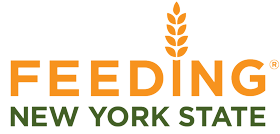ENHANCE SNAP BENEFITS
- Calculate SNAP monthly benefits based on the USDA’s Low Cost Food Plan instead of the Thrifty Food Plan, increasing SNAP benefits by an average of $125 a month per household.
- Allow all SNAP participants to purchase hot food and prepared meals with their benefits.
- Increase federal investments in the Gus Schumacher Nutrition Incentive Program (GusNIP), which supports New York’s Double Up Food Bucks program.


